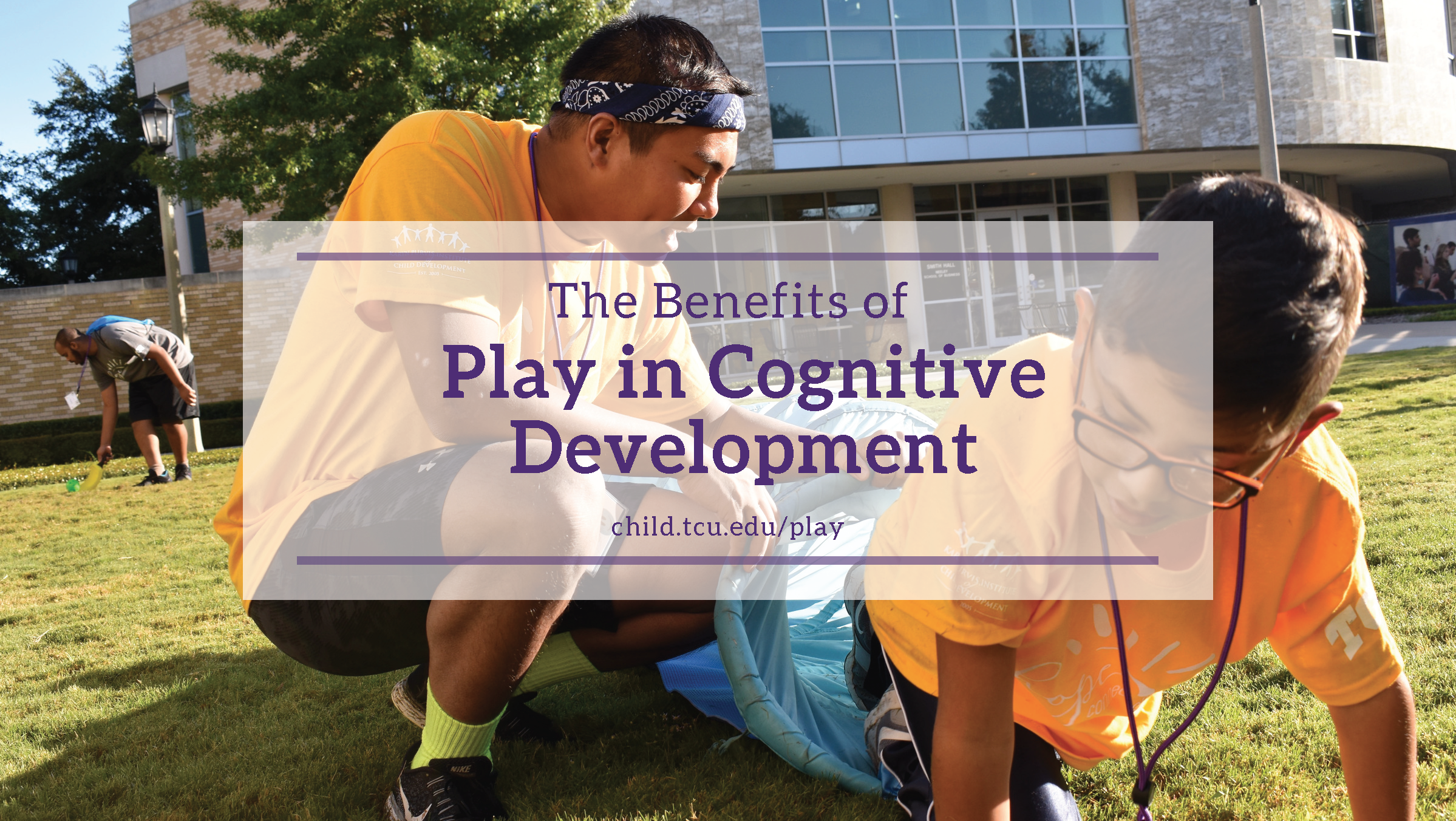The Benefits of Play in Cognitive Development

Editor’s note: While it may seem like a simple idea, play is fundamental to forming trust-based relationships. Play permeates the TBRI empowering, connecting, and correcting principles and as Dr. Purvis once said: “Play disarms fear, builds connectedness, and teaches social skills and competencies for life.” We’ve recently received a few questions about the benefits of play in cognitive development, so we’ve provided this summary of current research on the positive impact of play.
The Benefits of Play
By Sheri Parris & Christian Hernandez
Play provides a wide variety of benefits for children. Through play, children build and strengthen socio-emotional and cognitive skills. Children at play have agency (control over their own actions) and feel socially and emotionally safe. They express themselves freely, trying out different behaviors or ideas, without fear or anxiety. Peter Gray (2017) defines play as an activity that (1) is self-chosen and self-directed, (2) is motivated more by means than ends, (3) is guided by mental rules, and (4) includes a strong element of imagination.
Gray also notes that children practice different skills during different types of play. Categories of play include (a) physical/locomotor play (e.g., running, climbing, chasing); (b) constructive play (e.g., building things, creating art or music); (c) language play (e.g., infant cooing, puns, rhymes); (d) fantasy or pretend play (e.g., constructing pretend worlds); (e) games with formal rules (e.g., baseball, chess, dominoes); and (f) social play (e.g., any type of play involving 2 or more children).
Play has shown to have many benefits for the brain because it not only engages children in activities that promote cognitive development (e.g., problem-solving, collaboration, mental flexibility, creativity) but it also removes barriers to cognitive development (e.g., fear, anxiety, stress). Likewise, play promotes development of a wide range of socio-emotional skills, such as self-regulation, listening, negotiating, independent thinking, taking other perspectives, persistence, and curiosity.
Lev Vygotsky was a soviet psychologist whose observations about play continue to be validated psychologists over a century later. He found that social make-believe play was the ideal context for cognitive development. For instance, when children create imaginary situations, they increase their ability to follow internal ideas and social rules rather than impulses, and can practice activities they are too young to perform in real life. In these imaginary roles, children can be a parent rocking a doll and telling it a bedtime story, or a firefighter putting out a fire. Also during make-believe play, children engage in ‘private speech’ where they practice using their thoughts to control their actions. During make-believe play, children can try a wide variety of new and challenging activities, acquiring many new competencies. Recent studies have supported Vygotsky’s observations, including one study by Elias and Berk (2002) showing that joint make-believe play with peers improves self-regulation in highly impulsive preschoolers.
Continue here: https://child.tcu.edu/play/#sthash.ThqVYOzO.dpbs
Category: News







